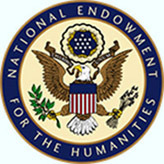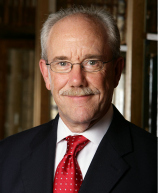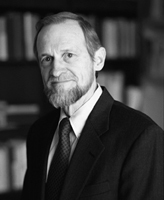
Two University of Notre Dame professors—historian Thomas F.X. Noble and theologian Eugene Ulrich been awarded National Endowment for the Humanities (NEH) fellowships for 2011-12.
“It’s a big honor,” says Noble, chair of the Department of History and former director of the Medieval Institute in the College of Arts and Letters. “I’m very pleased to continue the line here at Notre Dame. We’ve done quite well with the NEH over the years.”
Notre Dame has been awarded 44 NEH fellowships between 1999 and 2011—more than any other university in the country. The University of Michigan has been second to Notre Dame with 35 NEH fellowships during that 12-year period, followed by Harvard University at 26, Princeton University at 22, and the University of California, Berkeley, at 19.
NEH fellowships support advanced research that contributes to scholarly knowledge or to the general public’s understanding of the humanities. Recipients usually produce articles, monographs on specialized subjects, books on broad topics, archaeological site reports, translations, editions, or other scholarly tools.
A New Take on Rome

Noble’s NEH fellowship is for a book called “Rome in the Medieval Imagination,” which will explore how medieval people thought about Rome.
“My book should be of value to medievalists of every kind because every medievalist encounters Rome, but no one has had a guidebook for those encounters,” Noble says. “There’s really no book that someone can take off the shelf and say, ‘What did medieval people actually think about Rome? What did Rome mean to them? What valence did it possess?’”
The book is not a history of Rome, but is meant to provide insights on the medieval people who expressed such varying opinions about it, Noble says. “I’m actually not interested particularly in whether anybody was right or wrong but in why they said the things they did.”
Noble has been writing about late antique and medieval Rome for more than 30 years. His research has focused on Carolingian history, medieval Rome, the popes, the papacy, papal relations with Byzantium, and controversies over religious art.
He has been awarded two previous NEH fellowships—one in 1980 to work on “The Republic of St. Peter: The Birth of the Papal State” and another in 1993 when he began the research for his book “Images, Iconoclasm, and the Carolingians.”
NEH fellowships are a strong affirmation, Noble says. “It’s a kind of an early signal that you’re onto something, that you’re doing something that your peers think is worthwhile.”
Ancient Insights

Ulrich, Rev. John A. O’Brien Professor of Theology, is one of the world’s leading scholars of the Dead Sea Scrolls, a collection of ancient texts discovered after World War II in caves along the shore of the Dead Sea near Jerusalem.
“The biblical scrolls are manuscripts in Hebrew that are 1,000 years older than any Hebrew texts we used to have, so they really take us back to the period of the composition of the text,” he says.
Ulrich’s NEH fellowship is for “The Bible in Light of the Dead Sea Scrolls,” a follow-up to his 2010 book, “The Biblical Qumran Scrolls: Transcriptions and Textual Variants”—a collection of all the texts in the biblical Dead Sea Scrolls.
“This new book will be a synthetic view that pulls together in a systematic fashion all the surprising learnings these scrolls have taught us—what we now know about the Bible that we didn’t 60 years ago,” he says. “There was great pluriformity in the biblical texts in antiquity, but we inherited only one form of it. Now we are seeing many of the other forms.”
Ulrich has spent virtually his entire academic career editing and studying the Dead Sea Scrolls—arguably the greatest archeological find of the 20th century. In 1977, he received an NEH fellowship to publish his first Dead Sea Scroll, the Book of Samuel. Between 1986 and 2006, Ulrich says he received “almost continuous” NEH funding as part of the official Dead Sea Scrolls translation team.
He is one of the three general editors of the Scrolls International Publication Project, chief editor of the Biblical Scrolls, and a member of the editorial board for Oxford’s “Encyclopedia of the Dead Sea Scrolls.” Ulrich, who co-authored “The Dead Sea Scrolls Bible,” is also a member of the translation teams of both the “New Revised Standard Version” of the Bible and the “New American Bible.”
Originally published by at al.nd.edu on January 26, 2011.